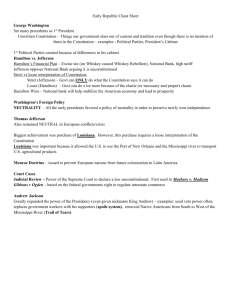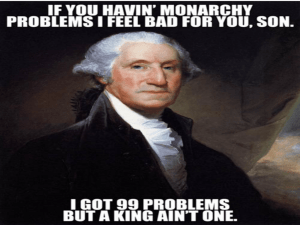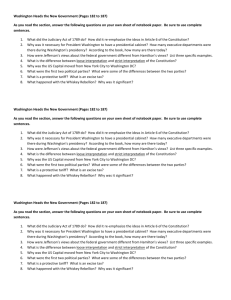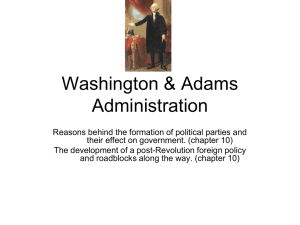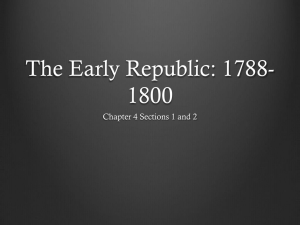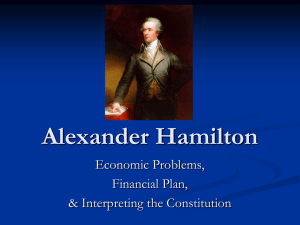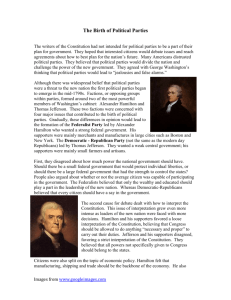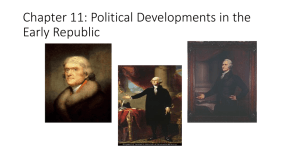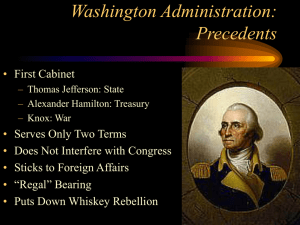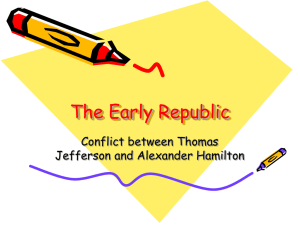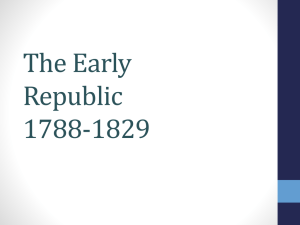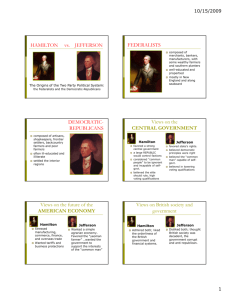Launching the New Ship of State
advertisement
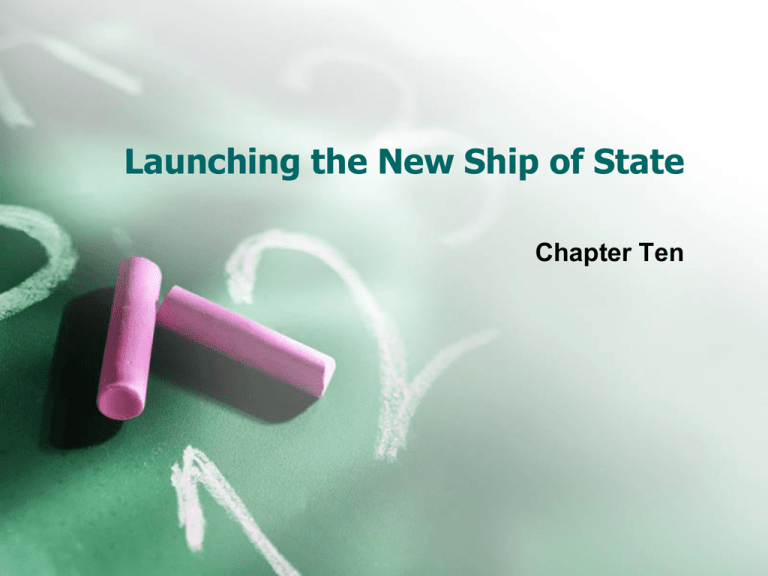
Launching the New Ship of State Chapter Ten George Washington & his Cabinet George Washington • John Adams—Vice President • Thomas Jefferson—Sec. of State • Alexander Hamilton—Sec. of the Treasury • Henry Knox—Sec. of War • Edmund Randolph—Attorney General First Job of the New Government: • To add a Bill of Rights to the Constitution 2/3 vote by Congress & ratified by ¾ of states Used George Mason’s bill of rights in VA as a guide Key: provided safeguards for some of America’s core principles • Judiciary Act of 1789 Organized the Supreme Court with a Chief Justice (John Jay) and originally 5 associates KEY COURT CASE: Marbury v. Madison, 1803 Hamilton’s Financial Plan: • BE FAT (yes, an acronym) • B—the creation of the Bank of the United States (BUS) • E—Excise Tax on whiskey • F—Funding at Par (key: increase national credit) • A—Assumption of State Debts; Hamilton wanted the states to be more obligated to the federal government • T—Tariffs (custom duties) passed to help new industries growing in the U.S. Strict vs. Loose Constructionists • Issue of the BUS: Strict constitution: strict interpretation of the Constitution (Jefferson) Loose constitution: broad interpretation of the Constitution (Hamilton) Jefferson opposed BUS b/c felt it was not stipulated in the Constitution Hamilton argued the Constitution allowed for a BUS b/c of “elastic clause” of Constitution • Bank necessary to store tax revenue and regulate trade Whiskey Rebellion (1794) • Who: sw PA backcountry folks hit hard by excise tax • What: challenged the new national gov; Washington sent a militia to stop rebellion • Significance: Federal government showed it could ensure domestic tranquility • Hamilton’s financial plan became a cornerstone of America’s financial system Birth of Political Parties • Constitution never mentioned party system • 2 well-defined groups emerged: Hamilton Federalists Jeffersonian Republicans • 2 political party system started over a clash b/t Hamilton and Jefferson Hamilton’s Federalists • Believed in gov by upper class • Distrusted the common people • Supported a strong central gov • Gov to encourage business & not interfere with it • Pro-British in foreign policy Jeffersonian Republicans • Advocated the rule of the people; gov FOR the people • Biggest appeal was to the middle class & poor • Democratic-Republicans believed the best gov was one that governed least • National debt was a curse to future generations • Jeffersonians were primarily agrarians • Believed in freedom of speech to expose tyranny • Pro-French in foreign policy
